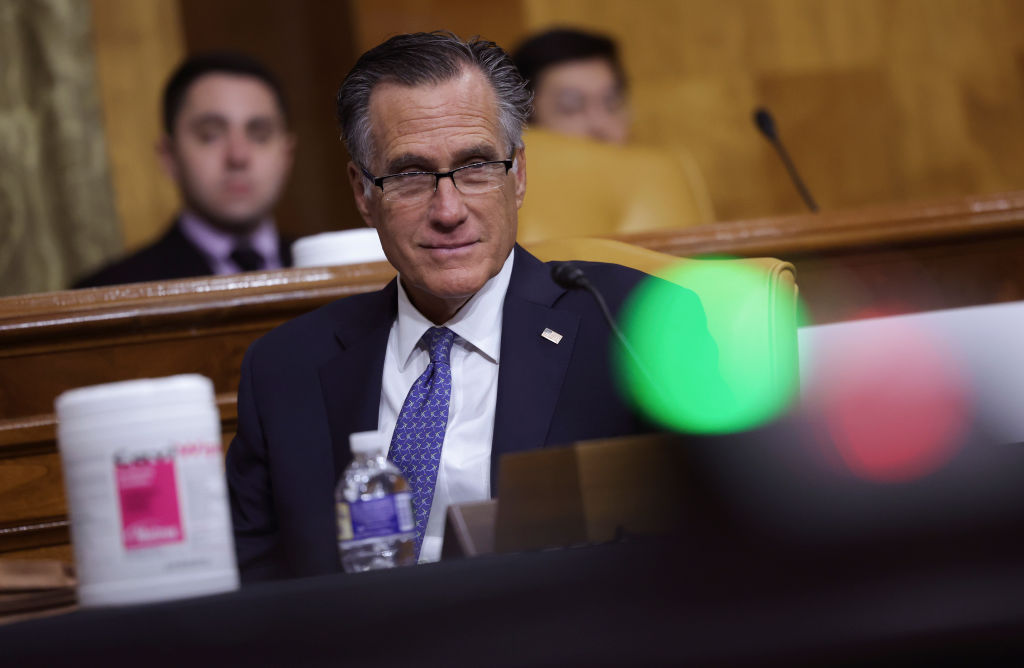Senate negotiators reach $10 billion COVID funding deal, without global vaccine funds


A free daily email with the biggest news stories of the day – and the best features from TheWeek.com
You are now subscribed
Your newsletter sign-up was successful
Senate Majority Leader Chuck Schumer (D-N.Y.) and Sen. Mitt Romney (R-Utah) on Monday announced a $10 billion deal to fund COVID-19 treatments, vaccines, and related domestic tools to fight the pandemic. But the deal, lower than the $22.5 billion requested by the White House, doesn't contain funds for helping other countries fight the pandemic, slightly complicating the deal's passage through the Democratic-controlled House.
Romney, the top GOP negotiator, said the package would address America's "urgent COVID needs" and highlighted that it "will not cost the American people a single additional dollar," since the funds were repurposed from previous COVID-19 relief packages. Schumer, the lead Democratic bargainer, said that "while we were unable to reach an agreement on international aid in this new agreement, many Democrats and Republicans are committed to pursuing a second supplemental later this spring."
The White House, which had warned the federal government was running out of funds for vaccines and treatments, backed the compromise deal. "Every dollar we requested is essential," said Press Secretary Jen Psaki. "But time is of the essence. We urge Congress to move promptly on this $10 billion package because it can begin to fund the most immediate needs."
The Week
Escape your echo chamber. Get the facts behind the news, plus analysis from multiple perspectives.

Sign up for The Week's Free Newsletters
From our morning news briefing to a weekly Good News Newsletter, get the best of The Week delivered directly to your inbox.
From our morning news briefing to a weekly Good News Newsletter, get the best of The Week delivered directly to your inbox.
Republican negotiators over the weekend couldn't agree on a unified position on the international aid, with some insisting it be tied to President Biden dropping his plan to halt pandemic border rules, Politico reports. Democratic negotiators agreed to drop the funding to get the domestic funds on the move, but they called it penny-wise, pound-foolish.
Sen. Chris Coons (D-Del.) said it was a "grave mistake" and "fiscally foolish" to not send tens of millions of unused U.S. vaccines aboard. "We know that the virus is going to mutate much more effectively in large bodies of unvaccinated people," said Rep. Jake Auchincloss (D-Mass.), co-chair of the Global Vaccination Caucus, and mutations travel around the world.
A free daily email with the biggest news stories of the day – and the best features from TheWeek.com
Peter has worked as a news and culture writer and editor at The Week since the site's launch in 2008. He covers politics, world affairs, religion and cultural currents. His journalism career began as a copy editor at a financial newswire and has included editorial positions at The New York Times Magazine, Facts on File, and Oregon State University.
-
 Health insurance: Premiums soar as ACA subsidies end
Health insurance: Premiums soar as ACA subsidies endFeature 1.4 million people have dropped coverage
-
 Anthropic: AI triggers the ‘SaaSpocalypse’
Anthropic: AI triggers the ‘SaaSpocalypse’Feature A grim reaper for software services?
-
 NIH director Bhattacharya tapped as acting CDC head
NIH director Bhattacharya tapped as acting CDC headSpeed Read Jay Bhattacharya, a critic of the CDC’s Covid-19 response, will now lead the Centers for Disease Control and Prevention
-
 A Nipah virus outbreak in India has brought back Covid-era surveillance
A Nipah virus outbreak in India has brought back Covid-era surveillanceUnder the radar The disease can spread through animals and humans
-
 Trump HHS slashes advised child vaccinations
Trump HHS slashes advised child vaccinationsSpeed Read In a widely condemned move, the CDC will now recommend that children get vaccinated against 11 communicable diseases, not 17
-
 Covid-19 mRNA vaccines could help fight cancer
Covid-19 mRNA vaccines could help fight cancerUnder the radar They boost the immune system
-
 FDA OKs generic abortion pill, riling the right
FDA OKs generic abortion pill, riling the rightSpeed Read The drug in question is a generic version of mifepristone, used to carry out two-thirds of US abortions
-
 The new Stratus Covid strain – and why it’s on the rise
The new Stratus Covid strain – and why it’s on the riseThe Explainer ‘No evidence’ new variant is more dangerous or that vaccines won’t work against it, say UK health experts
-
 RFK Jr. vaccine panel advises restricting MMRV shot
RFK Jr. vaccine panel advises restricting MMRV shotSpeed Read The committee voted to restrict access to a childhood vaccine against chickenpox
-
 Texas declares end to measles outbreak
Texas declares end to measles outbreakSpeed Read The vaccine-preventable disease is still spreading in neighboring states, Mexico and Canada
-
 RFK Jr. shuts down mRNA vaccine funding at agency
RFK Jr. shuts down mRNA vaccine funding at agencySpeed Read The decision canceled or modified 22 projects, primarily for work on vaccines and therapeutics for respiratory viruses
